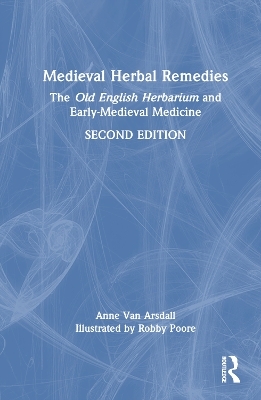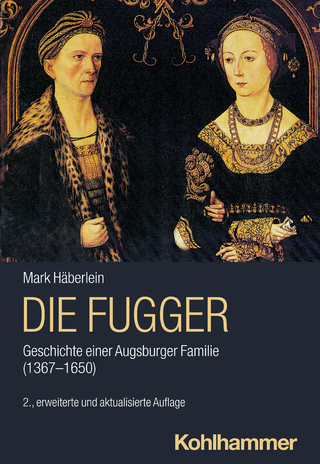
Medieval Herbal Remedies
The Old English Herbarium and Early-Medieval Medicine
Seiten
2023
|
2nd edition
Routledge (Verlag)
978-0-367-75379-5 (ISBN)
Routledge (Verlag)
978-0-367-75379-5 (ISBN)
Featured here is a modern translation of a medieval herbal, preceded by a study showing how this technical treatise on herbs was turned into a literary curiosity. The transformation began with its first translation in 1864, one that continues to affect how this and other early-medieval medical texts are read.
Featured here is a modern translation of a medieval herbal, with a study showing how this technical treatise on herbs was turned into a literary curiosity in the nineteenth century. The contours of this second edition replicate the first; however, it has been revised and updated throughout to reflect new scholarship and new findings. New information is presented on Oswald Cockayne, the nineteenth-century philologist who first translated the Old English medical texts for the modern world.
Here the medieval text is read as an example of technical writing (i.e., intended to convey instructions/information), not as literature. The audience it was originally aimed at would know how to diagnose and treat medical conditions and knew or was learning how to follow its instructions. For that reason, while working on the translation, specialists in relevant fields were asked to shed light on its terse wording, for example, herbalists and physicians. Unlike many current studies, this work discusses the Herbarium and other medical texts in Old English as part of a tradition developed throughout early-medieval Europe associated with monasteries and their libraries.
The book is intended for scholars in cross-cultural fields; that is, with roots in one field and branches in several, such as nineteenth-century or medieval studies, for historians of herbalism, medicine, pharmacy, botany, and of the Western Middle Ages, broadly and inclusively defined, and for readers interested in the history of herbalism and medicine.
Featured here is a modern translation of a medieval herbal, with a study showing how this technical treatise on herbs was turned into a literary curiosity in the nineteenth century. The contours of this second edition replicate the first; however, it has been revised and updated throughout to reflect new scholarship and new findings. New information is presented on Oswald Cockayne, the nineteenth-century philologist who first translated the Old English medical texts for the modern world.
Here the medieval text is read as an example of technical writing (i.e., intended to convey instructions/information), not as literature. The audience it was originally aimed at would know how to diagnose and treat medical conditions and knew or was learning how to follow its instructions. For that reason, while working on the translation, specialists in relevant fields were asked to shed light on its terse wording, for example, herbalists and physicians. Unlike many current studies, this work discusses the Herbarium and other medical texts in Old English as part of a tradition developed throughout early-medieval Europe associated with monasteries and their libraries.
The book is intended for scholars in cross-cultural fields; that is, with roots in one field and branches in several, such as nineteenth-century or medieval studies, for historians of herbalism, medicine, pharmacy, botany, and of the Western Middle Ages, broadly and inclusively defined, and for readers interested in the history of herbalism and medicine.
Anne Van Arsdall, Ph.D. (ret.) Publications include papers, book chapters; and (ed.) Herbs and Healers from the Ancient Mediterranean through the Medieval West (2012) and The Old French Chronicle of Morea (2015), a translation of a crusade chronicle set in Greece.
Foreword Linda Ehrsam Voigts
Acknowledgments
Introduction
1. Oswald Cockayne: The scholar whose long shadow hangs over medieval medicine
2. Cockayne’s Herbarium
3. New contexts for the Old English Herbarium
4. About the Old English Herbarium: Manuscripts, illustrations, and need for an alternative to Cockayne’s translation
5.The Old English Herbarium: A modern translation
References and online resources
Alphabetical indexes of plant names
Index of medical complaints
General index
| Erscheinungsdatum | 10.02.2023 |
|---|---|
| Zusatzinfo | 65 Line drawings, black and white; 65 Illustrations, black and white |
| Verlagsort | London |
| Sprache | englisch |
| Maße | 156 x 234 mm |
| Gewicht | 480 g |
| Themenwelt | Geschichte ► Allgemeine Geschichte ► Mittelalter |
| Geisteswissenschaften ► Sprach- / Literaturwissenschaft ► Anglistik / Amerikanistik | |
| Geisteswissenschaften ► Sprach- / Literaturwissenschaft ► Literaturwissenschaft | |
| Studium ► Querschnittsbereiche ► Geschichte / Ethik der Medizin | |
| ISBN-10 | 0-367-75379-0 / 0367753790 |
| ISBN-13 | 978-0-367-75379-5 / 9780367753795 |
| Zustand | Neuware |
| Informationen gemäß Produktsicherheitsverordnung (GPSR) | |
| Haben Sie eine Frage zum Produkt? |
Mehr entdecken
aus dem Bereich
aus dem Bereich
eine neue Geschichte des Mittelalters
Buch | Hardcover (2023)
C.H.Beck (Verlag)
CHF 53,20
Geschichte einer Augsburger Familie (1367-1650)
Buch | Softcover (2024)
Kohlhammer (Verlag)
CHF 47,60


